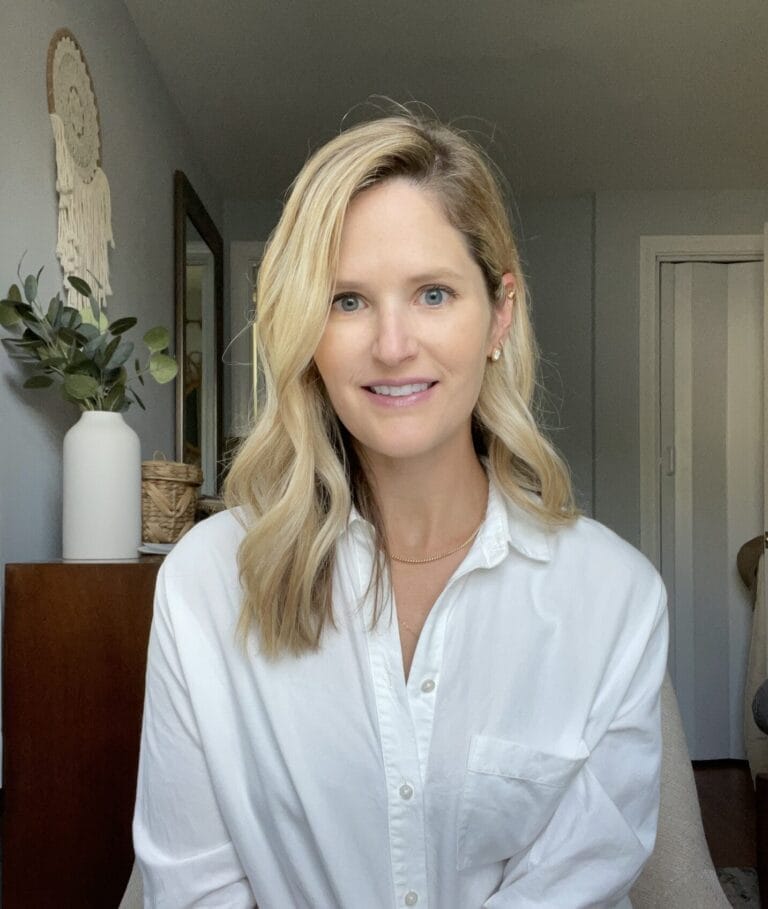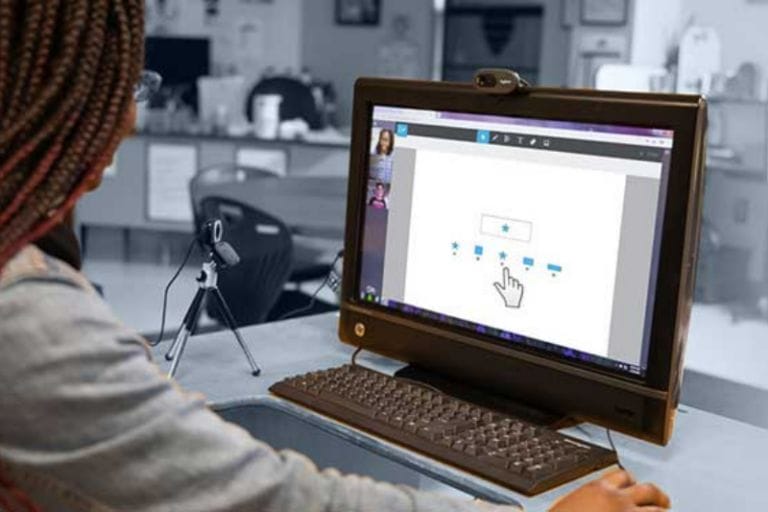

What inspired you to become a school psychologist?
I was 13 when I decided I wanted to be a psychologist. Ever since I can remember, I’ve always enjoyed helping people. Even in junior high school, if I saw someone sitting in the cafeteria alone, I was the one that always tried to approach them to see if they were okay. That’s just the way I was raised. I was taught that if you see someone who’s upset, you try to comfort them.
We’ve always been a religious family, so I was always involved in the youth group, typically as a student leader, as well as outside organizations. Being a leader, I was frequently called upon to help organize children’s summer camps and different activities which involved being a camp counselor. It just became something that I enjoyed, and it became part of my life. As a 13-year-old, I decided, I think I want to do this for the rest of my life.
I realized that I enjoy working with children so I attended graduate school when I was trying to decide what I actually wanted to do in psychology—I didn’t want to work in the lab and wasn’t sure about clinical—I knew I wanted to continue working with kids. That’s when I decided to pursue a degree in school psychology; I wanted to be where I could have the greatest impact and that is in the school system. I’ve been in the school system for 30 plus years, and have loved my job thoroughly.
At what point did you make the transition to teletherapy?
My transition to teletherapy began during COVID. I have some health risks so after COVID school closures, and we returned to in-person, I was working in a district, full-time, and there were just so many people contracting COVID. We had approximately 50 school psychologists in my department, and there were some times that we would have 6 to 8 people out at a time with COVID. Because I was working with many medically fragile students, I developed anxiety for my own health. That’s when I decided I was going to try teletherapy to see if that would work better for me and help me feel more comfortable. Surprisingly, I love it!
Being in the field for 30+ years, I was a very old-time school psychologist and felt like there was no way that I could obtain valid and proper data through teletherapy—I was very skeptical at first. But as I began to investigate the research and realized that we were getting really good, valid research reports and good data, I thought, “I’m going to try this.” As I began to feel more comfortable and proficient with teletherapy, I started seeing that I was wrong initially. I realized I was seeing just as good if not better results from using teletherapy.
And also I felt like I was getting more participation from parents. I remember when I was working in-person, it was very difficult to get participation from parents, and I really think it’s important to get the parents involved in the child’s educational process, especially when it comes to special education and therapy. Transportation to meetings presented a big hurdle for many parents and caregivers. When I discovered that parents were more apt to be involved in various video platforms that were available, I was finding that it worked, and it was successful.
That’s when I began to think “Wow! We need to go farther with this.“ I decided to invest more time in teletherapy and seek out more opportunities for it. I’ve grown to love teletherapy. I think it’s very effective, and I think the kids enjoy it because obviously, we have a generation that is very technologically proficient. They love anything involving technology. I think it gets their attention more than sitting down behind a desk, as traditional education has taught us, staring at a set of eyeballs, or sitting across the table from an old-timey testing easel. I think it helps sustain their attention a lot longer, and we can obtain better data, participation, and eager participation from the students.
What made you want to be a teletherapist with Presence?
I actually interviewed with Presence long before teletherapy became a “way of life” due to COVID-19. At that time being a teletherapist or conducting tele-assessment was a scary subfield. I had a full-time, in-person school psychologist position at the time and was too nervous to step out of my comfort zone, even though I loved the sound of becoming a teletherapist. I’d never researched teletherapy regarding standardization of conducting assessments via a video platform or counseling at that time. Of course, then COVID-19 occurred and changed all of our lives. The research began surfacing, and telehealth and tele-assessment became a way of life for us as school psychologists.
After all the school districts began returning to in-person learning, I decided that I loved the freedom and flexibility too much to return to the traditional in-person school psychologist position I once held. After I experienced that telehealth and tele-assessment could actually be conducted remotely, I was hooked! I decided to begin the job search for teletherapist positions, and Presence was the company that I thought of. I applied, interviewed, and started training. Everyone was so cordial and accommodating. I was, and still am very impressed!
What do you enjoy about being a provider with Presence?
I really enjoy the freedom and flexibility that I have. I need flexibility to finish my PhD. I also really enjoy the option of working from home! For me, I think I produce better work from the comfort of my home. I enjoy setting my own schedule, and I enjoy working with the Presence staff. Every interaction I’ve had with my directors has been positive. I think we all need as much positivity as possible these days. I don’t dread answering the phone when I see it’s one of the directors calling me. They’re very helpful and accommodating.
What were you most surprised about when you made the transition to be a teletherapist?
I was surprised at how much of my job could be conducted via a video platform, particularly the Presence platform. It’s amazing to work with it. People who think typical video-conferencing platforms are incredible need to work on the Presence platform just once, and they won’t want to go back. Through the Presence video platform, the teletherapist can play therapeutic games, provide counseling services, conduct assessments, and provide therapeutic videos for our clients to watch. We can even design our own content and import it into the platform. I’m so impressed!
Was there a learning curve for you as you transitioned to teletherapy? If so, describe the learning process as you adapted to this new service modality.
Yes, there was a learning curve. As an older school psychologist, I never believed that something like school psychological services could EVER be provided online; it was something that just had to be provided in a one-to-one setting. Then, after COVID-19 and more research began surfacing, I felt more comfortable. However, when I started providing services via the Presence platform, I was so nervous because I was afraid of “messing up!” I did mess up a few times and realized that the “end of the world” wasn‘t going to occur. I learned what or what not to do the next time. I learned the best way to overcome my fears was to jump in, get my feet wet, and give it all I had.
Presence even provided the means by which a teletherapist can practice before sessions with clients. I really like that! Each time I utilized the platform, my performance at navigating the platform improved, and I felt more comfortable. Also, directly on the platform, if you experience any technical issues, there’s a chat open to talk to the help desk immediately. I love that option.
Can you tell us a little about how you collaborate with teachers and other school staff members?
On therapy day, the school has a staff member specifically dedicated to work with me and the students I’ll be working with that day. She sets up the students‘ computer and then retrieves the students for each session scheduled for that day. She also intervenes if any issues arise. This person or proctor typically already knows the students, and has their schedule and my schedule for the day.
In terms of assessments, the proctor sets up the computer and already has access to the online assessments for the student that day. She also helps the student during the testing, making sure they’re on the right page of the test booklet, and that I can see the student activity via the document cam. She makes sure the student can see what I’m doing clearly with the student’s document cam.
This proctor is well-trained and in my experience, always willing to accept feedback on how to perform their job more effectively and efficiently. I, as the assessor, am also willing to accept feedback as to how to make the testing experience more efficient. The proctors are generally great to work with and have been trained to work with providers.
Could you walk us through your daily routine? A “day in the life of a Presence therapist,” if you will?
I schedule my sessions out several weeks in advance. I work closely with a staff member at the school, who has my cell number. At the beginning of the week, I like to plan my lessons for the sessions. Sometimes I use the same lesson for every student depending on the trend of the ongoing issues or sometimes, if I find a lesson or topic that I know will especially help a particular student, I will individualize the session.
Before I start seeing students through the Presence platform, I typically check-in with the proctor to make sure everything is running smoothly. I see about seven students per therapy day, and between students, I write therapy notes. The day goes really smoothly, more than I imagined it would. The students seem to really enjoy the sessions, perhaps because it’s something non-traditional.
How has the Presence online platform enabled you to help your students and the schools you serve in new ways?
In my experience, the state I work in is experiencing a shortage in school psychologists. Due to this shortage, many districts are desperately looking for school psychologists to perform evaluations and provide counseling for related services as indicated on student IEPs. With the Presence online platform, we are able to provide these services to the schools, obviously without being there in-person. We are very ethical, and only administer assessments in which research and publishing companies have made statements regarding online administration.
Presence has all the assessments built into the platform, so all one needs to do is set-up what we call “queues” for each student. Each queue contains all the assessments that we plan to administer to that student. If we find we need something else instead, it’s not a problem to retrieve the desired assessment. We can do the same thing with social wellness groups for our counseling students. There’s even an option where we can write on a white screen, pass on control of the computer mouse to the student, and they can write a reply! In turn, the student can pass control of the computer mouse back to me. For the students who are distracted by computers and love clicking on other tabs and so forth, I can disable those features through the platform. It’s genius!
I also attend ARDs (in Texas: Admission Review and Dismissal meetings) or IEP meetings as often as I can, as well as work with the school’s special education team to develop counseling goals as part of the student’s IEP.
How do you build trust and rapport with parents?
I think communication is the key. The parents love to hear from me. The more exposure they have with me, the more they trust me and build the same relationship they’d build with an on-campus staff member. If they want to meet with me through the platform, I’m more than willing to accommodate them and involve them as much as possible in the treatment plan of their child. After all, they know their child better than all of us, and they hopefully were part of the IEP team to develop the educational plan.
What advice would you give districts considering online therapy?
I would say to at least give online therapy a chance. I know that Presence screens their employee team well, as well as providing stellar training to their teletherapists and tele-assessors. Going with a provider company such as Presence is a wise decision because they have a well-developed platform and methodology that they adhere to, as well as having provided years of tele-services to parents and children.
Presence promotes teamwork in every aspect!




